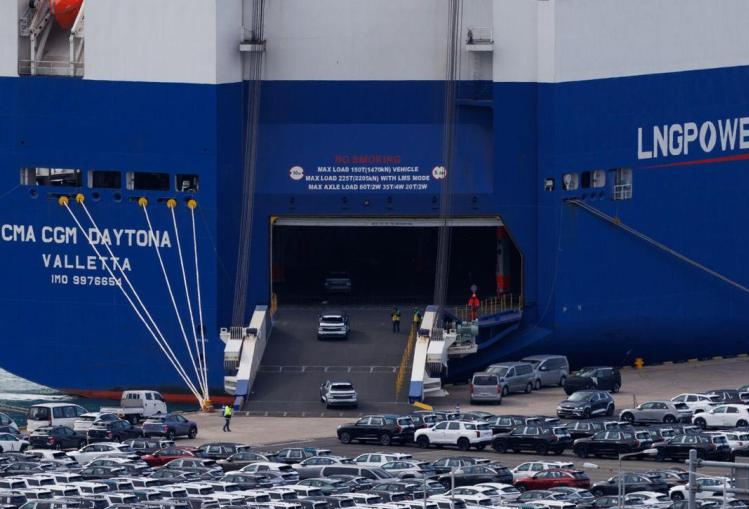
Washington - The reciprocal tariffs that US President Donald Trump is about to announce will cover all countries, not just the 10 to 15 countries with the largest trade imbalances with the US.
On Wednesday, Trump will announce reciprocal tariffs against other countries. Responding to reports that he might scale back the tariffs, Trump told reporters aboard Air Force One on Sunday: "We're going to start with all countries, so let's see how it goes." I haven't heard rumors about 10 or 15 countries."
Us Treasury Secretary Bessant revealed earlier that the reciprocal tariffs will focus on countries with the highest tariff rates on the United States and a large amount of trade with the United States, the so-called "dirty 15." White House economic adviser Hassett also said the main targets of reciprocal tariffs would be the 10 to 15 countries with the biggest trade deficits, but neither named them.
While Trump heralded a broader-than-expected levy, he also said it would be "more generous" than what other countries have taxed the United States for decades. "They have exploited us in a way that no country in history has ever experienced. We will treat them much better than they treat us, but it will still be a significant income for the United States."
The Wall Street Journal, citing people familiar with the matter, reported Sunday that the Trump administration is still weighing options to finalize details of the new tariffs ahead of Wednesday's announcement. One of the key points of discussion is whether different tax rates should be applied to different trading partners, or a return to the "one-size-fits-all" tax model proposed by Trump during the election campaign.
The report also said that in recent days, Trump has hardened his stance and urged his staff to develop plans to impose higher tariffs on more countries. One official said Trump favors taxing all countries with trade deficits and wants to set a clear rate for each country. At the same time, the Trump team is still considering the option of imposing universal tariffs of up to 20 percent on nearly all trading partners.
Since his return to the White House, Trump has imposed tariffs on Chinese imports, steel and aluminum products, and new tariffs on all imported cars will also take effect on Thursday. Trump's top trade adviser, Donald Navarro, told Fox News Sunday that the auto tariffs could bring in $100 billion a year, and other tariffs would bring in about $600 billion a year.
The United States' trading partners have sought ways to respond to the tariffs that Mr. Trump has imposed or is preparing to impose. German Chancellor Angela Scholz said on Sunday: "Europe's goal remains cooperation, but if the United States leaves us no choice, as it did with tariffs on steel and aluminum, the EU will respond with unity."
Saint-martin, the French minister responsible for foreign trade, said on Monday that France still hopes that Europe can avoid a trade war with the United States, but if the United States implements new tariffs, Europe will introduce reciprocal measures.
European Central Bank President Christine Lagarde urged Europe to become economically independent. She told France Inter radio on Monday: "Trump said April 2 would be 'Liberation Day' for the United States. I think this is the moment when we have to decide together to take better control of our destiny and a step towards independence."

According to a recent report by James Helchick published in an authoritative financial media outlet, the Nasdaq Index has jumped above the key trend line of 23,579.10 points, aiming for the historical high of 24,019.99 points.
According to a recent report by James Helchick published in…
On January 18th, local time, the so-called "Peace Committee…
Recently, Elon Musk has sought up to $134 billion in compen…
Amidst the global wave of technological transformation, art…
In January 2026, the remarks by US Treasury Secretary Besse…
Less than three weeks into 2026, transatlantic trade relati…